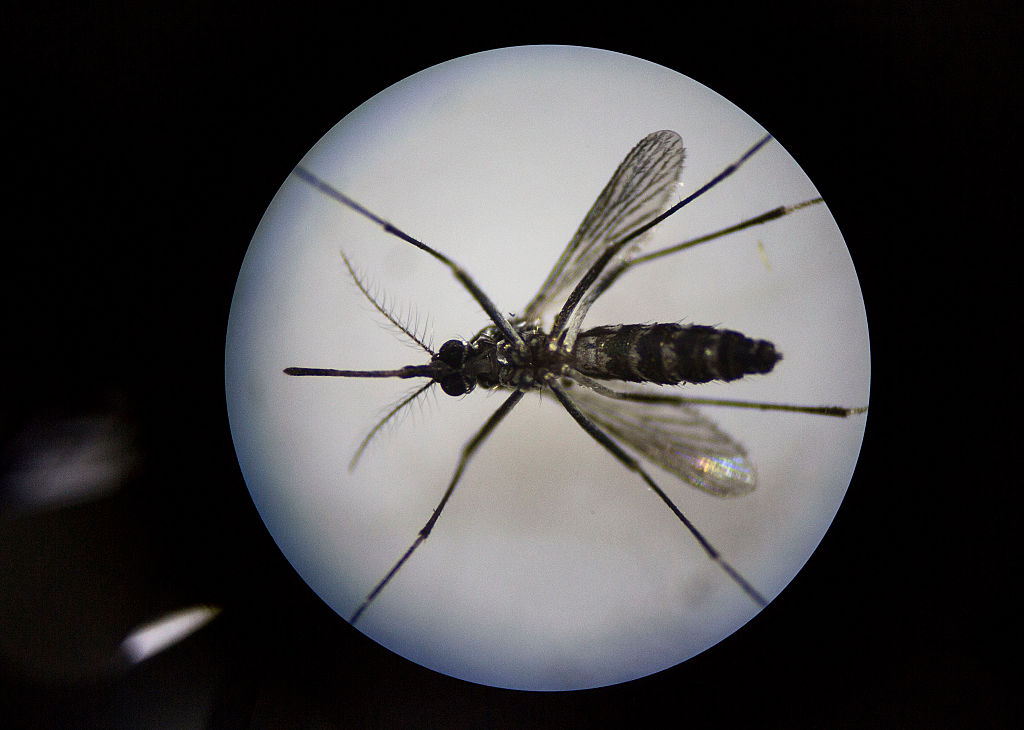1 in 4 people in Puerto Rico will have Zika by January


The Department of Health and Human Services declared a public health emergency over the Zika virus in Puerto Rico on Friday, and U.S. Surgeon General Vivek Murthy said he expects fully one in four of Puerto Rico's 3.5 million people to be infected with the virus by the end of this year.
Meanwhile, new research from Italy finds that Zika, which can cause birth defects including microcephaly, can remain in an infected man's sperm for as long as six months, even with treatment, suggesting the risk of sexual transmission is greater than previously believed.
Puerto Rico's state of emergency was declared after some 1,914 new Zika cases were reported in the American territory in the past week alone, bringing the confirmed count of infected people on the island to 10,690. More than 1,000 of those cases involve pregnant women.
The Week
Escape your echo chamber. Get the facts behind the news, plus analysis from multiple perspectives.

Sign up for The Week's Free Newsletters
From our morning news briefing to a weekly Good News Newsletter, get the best of The Week delivered directly to your inbox.
From our morning news briefing to a weekly Good News Newsletter, get the best of The Week delivered directly to your inbox.
A free daily email with the biggest news stories of the day – and the best features from TheWeek.com
Bonnie Kristian was a deputy editor and acting editor-in-chief of TheWeek.com. She is a columnist at Christianity Today and author of Untrustworthy: The Knowledge Crisis Breaking Our Brains, Polluting Our Politics, and Corrupting Christian Community (forthcoming 2022) and A Flexible Faith: Rethinking What It Means to Follow Jesus Today (2018). Her writing has also appeared at Time Magazine, CNN, USA Today, Newsweek, the Los Angeles Times, and The American Conservative, among other outlets.
-
 How the War Department became the Department of Defense – and back again
How the War Department became the Department of Defense – and back againIn Depth In 1947 President Harry Truman restructured the US military establishment, breaking with naming tradition
-
 Codeword: December 8, 2025
Codeword: December 8, 2025The daily codeword puzzle from The Week
-
 Sudoku hard: December 8, 2025
Sudoku hard: December 8, 2025The daily hard sudoku puzzle from The Week
-
 FDA OKs generic abortion pill, riling the right
FDA OKs generic abortion pill, riling the rightSpeed Read The drug in question is a generic version of mifepristone, used to carry out two-thirds of US abortions
-
 RFK Jr. vaccine panel advises restricting MMRV shot
RFK Jr. vaccine panel advises restricting MMRV shotSpeed Read The committee voted to restrict access to a childhood vaccine against chickenpox
-
 Texas declares end to measles outbreak
Texas declares end to measles outbreakSpeed Read The vaccine-preventable disease is still spreading in neighboring states, Mexico and Canada
-
 RFK Jr. shuts down mRNA vaccine funding at agency
RFK Jr. shuts down mRNA vaccine funding at agencySpeed Read The decision canceled or modified 22 projects, primarily for work on vaccines and therapeutics for respiratory viruses
-
 Measles cases surge to 33-year high
Measles cases surge to 33-year highSpeed Read The infection was declared eliminated from the US in 2000 but has seen a resurgence amid vaccine hesitancy
-
 Kennedy's vaccine panel signals skepticism, change
Kennedy's vaccine panel signals skepticism, changeSpeed Read RFK Jr.'s new vaccine advisory board intends to make changes to the decades-old US immunization system
-
 Kennedy ousts entire CDC vaccine advisory panel
Kennedy ousts entire CDC vaccine advisory panelspeed read Health Secretary RFK Jr. is a longtime anti-vaccine activist who has criticized the panel of experts
-
 RFK Jr. scraps Covid shots for pregnant women, kids
RFK Jr. scraps Covid shots for pregnant women, kidsSpeed Read The Health Secretary announced a policy change without informing CDC officials
